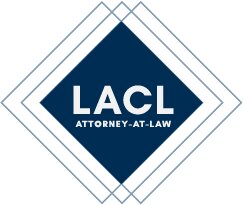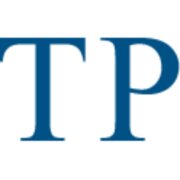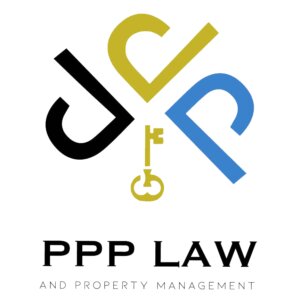Best Debt Capital Markets Lawyers in Huai Khwang
Share your needs with us, get contacted by law firms.
Free. Takes 2 min.
List of the best lawyers in Huai Khwang, Thailand
About Debt Capital Markets Law in Huai Khwang, Thailand
Debt Capital Markets (DCM) involve raising funds by issuing debt instruments, such as bonds, debentures, and notes, to investors. In Huai Khwang, a vibrant district of Bangkok, businesses and government entities often utilize DCM as a tool for financing expansion, infrastructure projects, and other corporate activities. The legal landscape governing DCM in Thailand is rigorous, with oversight from several regulatory authorities to ensure transparency and investor protection. These regulations are designed to promote fair trading, adequate disclosure, and proper conduct in the issuance and trading of debt securities.
Why You May Need a Lawyer
Navigating the complexities of Debt Capital Markets can be challenging, especially in an environment with strict regulatory requirements. Here are some common situations where seeking legal advice is highly valuable:
- Structuring and issuing bonds or other debt securities
- Ensuring compliance with local and international financial regulations
- Drafting and reviewing offering documents
- Negotiating with investors or intermediaries
- Handling defaults or restructuring existing debt instruments
- Responding to regulatory investigations or enforcement actions
- Advising on tax implications and cross-border transactions
- Managing risks associated with disclosure, transparency, and anti-money laundering (AML) laws
Experienced legal counsel can help prevent costly mistakes, protect your interests, and guide you through the process efficiently.
Local Laws Overview
Thailand’s Debt Capital Markets are regulated mainly by the Securities and Exchange Commission of Thailand (SEC), as well as the Stock Exchange of Thailand (SET) for listed bonds. Here are key legal aspects relevant to DCM in Huai Khwang and greater Thailand:
- Securities and Exchange Act: Governs the issuance and trading of securities, including bonds and notes, and mandates disclosure, registration, and regulatory approval.
- Thai Bond Market Association (ThaiBMA): Provides rules for bond trading, market surveillance, and dissemination of market data.
- Foreign Exchange Regulations: Impact cross-border debt offerings and require compliance with Bank of Thailand rules.
- Public Offering vs Private Placement: Legal requirements vary significantly, with public offerings subject to stricter disclosure, registration, and approval processes.
- Taxation: Specific tax rates apply to interest income for both resident and non-resident investors, with applicable withholding requirements.
- Anti-Money Laundering and Know Your Customer (KYC): Issuers and intermediaries must comply with strict AML and KYC standards.
Frequently Asked Questions
What are Debt Capital Markets in the context of Thailand?
Debt Capital Markets refer to the segment of financial markets in Thailand where entities raise funds by issuing debt instruments, such as bonds or debentures, to investors.
Who regulates Debt Capital Markets in Huai Khwang and Thailand?
The main regulator is the Securities and Exchange Commission of Thailand (SEC), working alongside the Stock Exchange of Thailand (SET) and the Thai Bond Market Association (ThaiBMA).
Do I need approval to issue bonds in Thailand?
Yes. The issuance of bonds usually requires registration with the SEC and may also require compliance with SET rules if the bonds are to be listed or traded publicly.
Can foreign companies issue bonds in Thailand?
Foreign entities may issue baht-denominated bonds, but they must meet specific SEC criteria and follow foreign exchange rules set by the Bank of Thailand.
What are some key legal documents needed for DCM transactions?
Common documents include the information memorandum or prospectus, underwriting agreements, trust deeds, and subscription agreements.
What is the difference between a public offering and a private placement?
A public offering is open to the general public, subject to stringent regulatory requirements. Private placement is made to a select group of investors with less rigorous disclosure obligations.
How are investors protected in Thailand’s Debt Capital Markets?
Investor protection is ensured through mandatory disclosure, regulatory oversight, listing requirements, and ongoing monitoring by the SEC and other authorities.
Are there restrictions on investing in debt securities in Thailand?
Certain restrictions apply based on investor type, the nature of the instrument, and whether the offering is public or private. Retail investors may be subject to additional rules.
How are defaults or restructuring of debt handled?
Defaults and restructuring processes are governed by contract terms, bankruptcy laws, and may involve negotiation among issuers, investors, and trustees.
What are the tax implications for debt instruments in Thailand?
Interest income from debt securities is typically subject to withholding tax, with varying rates depending on the investor’s residency and applicable tax treaties.
Additional Resources
If you are seeking further information or need guidance, the following organizations and bodies can be helpful:
- Securities and Exchange Commission of Thailand (SEC)
- Stock Exchange of Thailand (SET)
- Thai Bond Market Association (ThaiBMA)
- Bank of Thailand
- Thai Lawyers Council
- Ministry of Finance Thailand
You may also consider consulting with local law firms or legal aid organizations specializing in securities and financial markets law.
Next Steps
If you need legal assistance regarding Debt Capital Markets in Huai Khwang, Thailand, consider the following steps:
- Gather all documents related to your DCM activities, including contracts, offering documents, and correspondence with regulators.
- Identify your specific legal concerns, such as compliance, structuring, or dispute resolution.
- Consult a licensed lawyer or law firm with expertise in Thai capital markets law-some offer initial consultations or case assessments.
- Prepare questions in advance and be ready to provide comprehensive background information to your legal counsel.
- Follow your lawyer’s advice regarding regulatory filings, negotiations, or any remedial actions necessary to protect your interests.
By being proactive and informed, you can navigate the Debt Capital Markets in Huai Khwang with confidence and ensure full compliance with relevant laws and regulations.
Lawzana helps you find the best lawyers and law firms in Huai Khwang through a curated and pre-screened list of qualified legal professionals. Our platform offers rankings and detailed profiles of attorneys and law firms, allowing you to compare based on practice areas, including Debt Capital Markets, experience, and client feedback.
Each profile includes a description of the firm's areas of practice, client reviews, team members and partners, year of establishment, spoken languages, office locations, contact information, social media presence, and any published articles or resources. Most firms on our platform speak English and are experienced in both local and international legal matters.
Get a quote from top-rated law firms in Huai Khwang, Thailand — quickly, securely, and without unnecessary hassle.
Disclaimer:
The information provided on this page is for general informational purposes only and does not constitute legal advice. While we strive to ensure the accuracy and relevance of the content, legal information may change over time, and interpretations of the law can vary. You should always consult with a qualified legal professional for advice specific to your situation.
We disclaim all liability for actions taken or not taken based on the content of this page. If you believe any information is incorrect or outdated, please contact us, and we will review and update it where appropriate.













